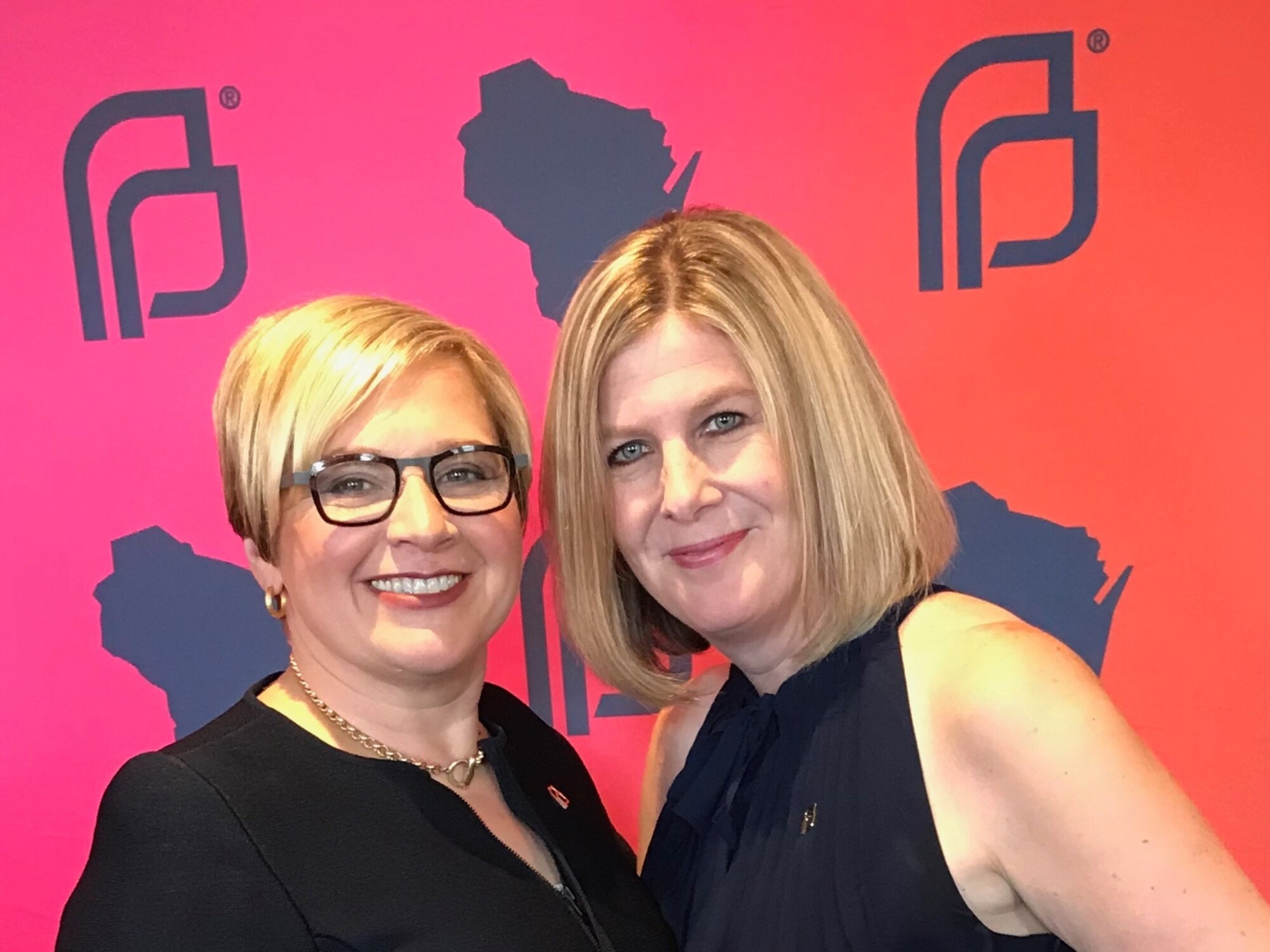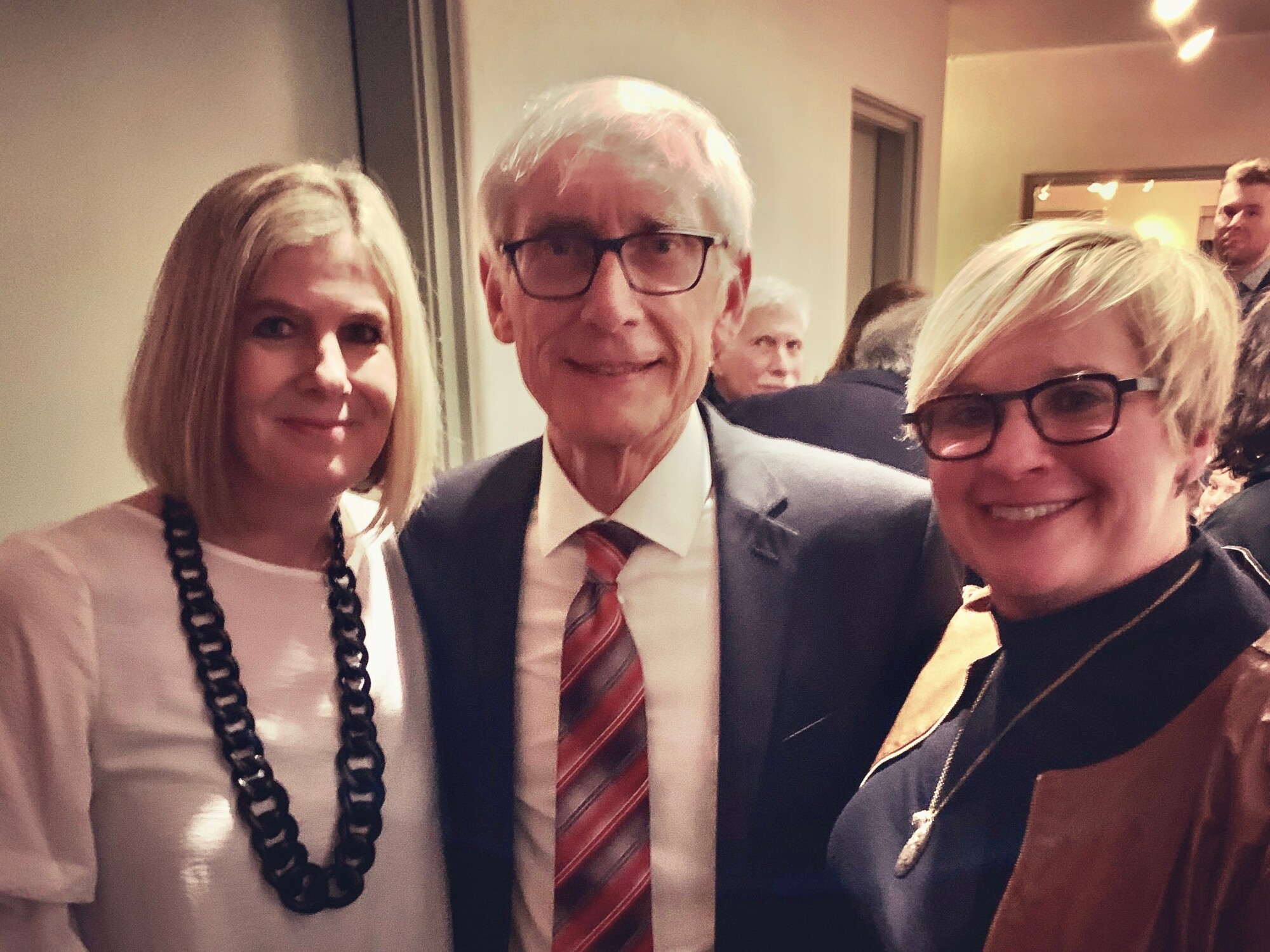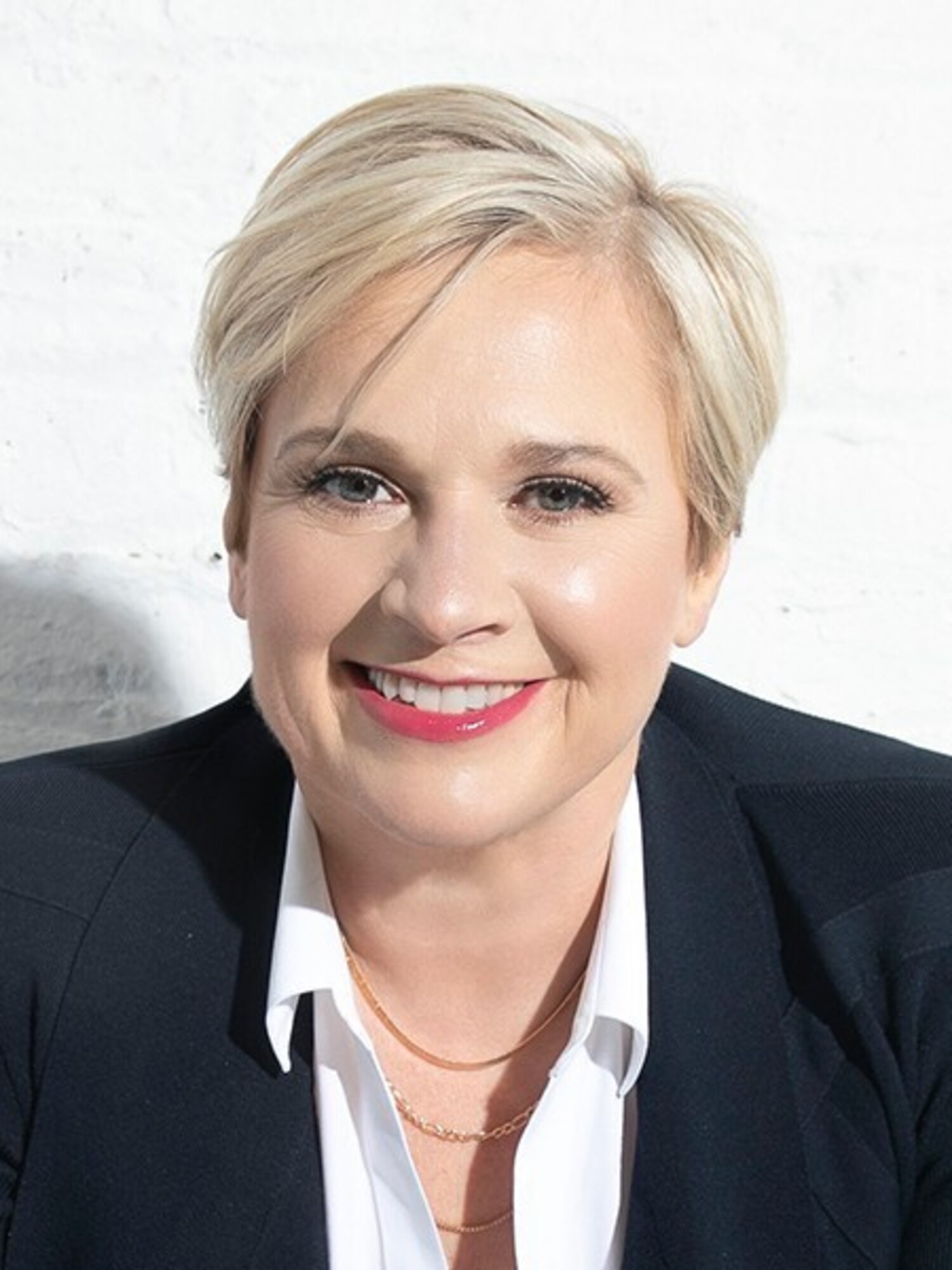
Tanya Atkinson: we will never be silent

Tanya was born on a dairy farm in southwestern Wisconsin. She received her B.S. from Carroll University and master’s of science in social work from University of Wisconsin-Madison. As school and work offered a diversity of experiences and connections to a range of communities, she began to have an awareness of who she might be.
“I started to see myself reflected in the world,” said Tanya, “and I started to understand what my unsettled feelings meant. By my early twenties, I’d finally arrived at a place of belonging.”
“It wasn’t entirely safe to be out socially or professionally,” said Tanya. “So, I didn’t exactly hide who I was, but at the same time, I did not publicly label myself. If I had felt safe enough to be more out, I could have been a role model or resource for someone.”
“My crucible moment came in the workplace. After filing a harassment complaint, I was put in the impossible situation of choosing: proceed with the complaint and be outed to the entire community, or let the complaint go. I was working with youth at that time, and the implication was that I’d never work in this field again. A field that I loved, with youth who relied on trusted adults to navigate social and justice systems.”
“I felt systemic injustice, so deeply, so professionally and personally, that I decided to do something about it. I went back to graduate school to focus on social work and public policy.”
“As we look at legal decisions throughout time, we see inextricable connections between LGBTQ rights and women’s rights,” said Tanya. “There’s been a concerted effort to divide us. Working together, the stronger we can all become.”
“People are losing the right to control their own bodies – and it’s the same old playbook, over and over, said Tanya. These anti-LGBTQ, anti-reproductive rights, initiatives use human lives for politics and power – and that’s simply unconscionable. I believe it’s my personal responsibility to be a part of movements to slam shut that playbook and advance efforts rooted in humanity, justice, and love. When the most marginalized communities in Wisconsin succeed, all of Wisconsin succeeds.”
“Yes, I am concerned about what we’re seeing nationally,” said Tanya, “but look at what’s happening in Wisconsin. We are not powerless. We’ve exerted our power. We are making change happen. Remember the shoulders upon which we stand.”
“People often ask, what can I do to make a difference? And the answer is, a lot,” said Tanya. “First of all, vote! It genuinely breaks my heart when people say their vote doesn’t matter. Voting is our power and a strength we need to continue to build."
"Second, find a cause and get involved however you feel is best for you!"
"And third, if you are safe to be visible, be visible.”
 Tanya and wife Laurie
Tanya and wife Laurie
 Tanya, Laurie, and Governor Tony Evers
Tanya, Laurie, and Governor Tony Evers
recent blog posts
December 17, 2025 | Michail Takach
December 16, 2025 | Michail Takach
December 01, 2025 | Dan Fons
The concept for this web site was envisioned by Don Schwamb in 2003, and over the next 15 years, he was the sole researcher, programmer and primary contributor, bearing all costs for hosting the web site personally.




